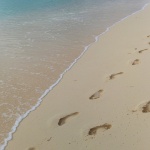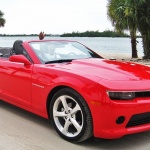Picayune Strand State Forest is one of 37 state timberlands in Florida overseen by the Florida Forest Service. The 78,000-acre of woodland comprises essentially of cypress swamps, wet pine Flatwoods, and wet prairies. There are sections open to the public but most areas are prohibited for access so the wildlife remains undisturbed.
Picayune Strand State Forest is situated in southwest Florida in western Collier County, roughly 30 miles (48 km) east of the city of Naples. The woods can be reached through Everglades Boulevard from the north, Jane’s Scenic Drive from the east, and Sabal Palm Road from the west. The Picayune Strand State Forest Field Office is situated at 2121 52nd Avenue SE, west of Everglades Boulevard S. The Forest is isolated into two tracts; the South Golden Gate Estates Tract toward the east and the Belle Meade Tract toward the west.
Picayune Strand State Forest is in the heart of a biological community called the Big Cypress Basin. The lion’s share of these watery woods is submerged amid the wet season. The backwoods is made out of cypress swamps, pine Flatwoods and wet prairies in the marshes and subtropical hardwood loft in the uplands. The northern area of the Belle Meade Tract contains many redevelopments South Florida Slash Pine, with some trees being more than 100 years of age.
Picayune Strand State Forest gives living space to numerous types of untamed life, including numerous that are either endangered or critical. The ones about to be mentioned are just an incomplete rundown of the species that can be found in the Forest: Florida Panther, American mountain bear. Red-cockaded woodpecker, white-followed deer, Wood Stork, Osceola turkey, Bald Eagle, Big Cypress fox squirrel, and swallow-followed kite. Despite the fact that Florida Panthers are once in a while separated from human contact, guests may still regularly discover panther tracks.
Picayune Strand State Forest offers numerous fun activities. A 22-mile (35 km) equestrian trail winds over the Belle Meade Tract from Miller Boulevard to Benfield Road. All stallions on the Forest must have current negative Coggins Test results, verification of which is to be conveyed by every rider. A primitive equestrian campground furnished with enclosures is situated beside the Field Office and trailhead, and an extra oak-shaded primitive campground is situated close to the center of the trail.
Dogs are permitted but as long as they’re used for hunting purposes. However, the dogs should be kept under physical restriction consistently. Mutts are prohibited in territories posted as “closed to public access” by FWC regulatory activity. No individual might enable any canine to seek after or attack any untamed life amid any period in which the taking of natural life by the utilization of dogs is prohibited.
What’s more, the four-mile Sabal Palm Trail is interested in explorers and cyclists and can be effectively reached from Sabal Palm Road. The Sabal Palm Trail is a piece of the Great Florida Birding Trail. Guests should take note of that trails are commonly overflowed amid the wet season. Off-expressway vehicles, for example, off-road vehicles (ATVs), off-parkway cruisers and swamp buggies are denied entry.
Rules may come across a bit strict in this part of the region but this is only so that the animals and the plant life are protected as much as possible. Nevertheless, taking a visit to the place will still be rewarding enough for those who love seeking adventure.










